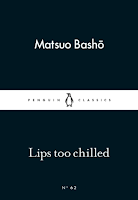By this evening, as I was fetching water from our well, I looked up at the sky with the usual eagerness. The whole firmament was glittering, studded with the cosmic diamonds. Against the dark backdrop of the night sky, the stars provided a brilliant spectacle, with my favourite asterism of the Orion's Belt standing out as usual, right above my head. While deep beneath them, we puny humans are carrying on with our lives in banal ways, with petty quarrels and concerns, these giant stars were shining above gloriously, whirling around in speeds unimaginable by our limited minds. Around me, the plants were all standing still as if they were also relishing the surreal beauty up above them.
Overcome by the magical nature of that moment, I felt immense love and gratitude surging up inside me. It was then that these words of spontaneous prayer broke out inside me -
'Dear Nature,
Please accept my immense gratitude for this beautiful moment.
Overcome by the magical nature of that moment, I felt immense love and gratitude surging up inside me. It was then that these words of spontaneous prayer broke out inside me -
'Dear Nature,
Please accept my immense gratitude for this beautiful moment.
I often wonder whether you are the god that this whole world worships in various names, attributing the powers of creation, preservation and destruction, because according to me you are the one that carries out all these tasks.
But then I decide that what our 'modern-day' religions worship can never be you.
Under the guise of so many megalomaniacal deities, that are control-freaks, baying for the blood of those who worship any deity other than them, we have all taken to worshipping our own egos and hidden desires.
You, with your all-encompassing and yet aloof demeanour, can never be a god.
You, with your all-encompassing and yet aloof demeanour, can never be a god.
Since you're not a god - at least not in the conventional sense of that word - all that I feel for you are not fear and a servile piety, but a deep sense of gratitude, bliss and love.
For, I know that I am within you, I am a part of you and I am you, having born of the composition of your various elements.
And, when this shell of mine perishes, my essence - my soul or whatever it is - is going to spread out into your cosmic womb, dissolving into millions of atoms, awaiting another chance composition into another being.
I am you, you are me.
I am That, and That is me!'
I am you, you are me.
I am That, and That is me!'








